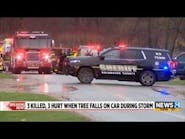It’s 6:30 a.m. Your pager goes off. You make it out the door in as fast of a fashion as you can. Awaiting your arrival is a male in his 20s on his way home from working his graveyard shift at the lumber mill. For lack of a better term, he looks strung out. He says he feels exhausted but feels awake. “I feel shaky,” he says, but you could see that from the other side of the car. He has been awake for the past three days and is feeling restless. You ask him, “Have you consumed any drugs or alcohol?” The answer is no, but he immediately states that he had three energy drinks in the past 12 hours and a total of 12 in the past three days.
Now, this isn’t uncommon to me, because I, too, was a connoisseur of the beloved “go-juice” in my days of trying to stay awake on shift.
What did I do when I encountered such a situation? I took his vitals, had him sign the release form and said, “Go home, take a nap and drink some water.” Now, let me explain why that wasn’t the right thing to do.
Physiological problems
Energy drinks are jacked up versions of caffeine. Not only do they contain large amounts of caffeine, but they also have other substances, such as guarana and taurine, that act along the same lines of caffeine. These things are sold everywhere, so what could be wrong with them?
An average cup of coffee contains approximately 90 mg of caffeine. Some energy drinks contain as much as 300 mg of caffeine. Caffeine is extremely addictive. Used to stay awake, the more that’s consumed, the less that it works, so more is consumed to chase that dragon that we want so much.
The most common problems that we could see physiologically with patients are psychologically based. Increased caffeine consumption, particularly when it’s more than 300 mg per day, can lead to anxiety, restlessness and inexhaustibility, to the extremes of violent behavior and visual disturbances. Calming and comforting is your best option for treatment of these patients. In extreme cases, you can consider a form of sedation if protocol allows for that type of treatment for a psychologically distressed patient.
The most critical physiological problem with excessive caffeine consumption is cardiac. Higher levels of caffeine consumption over longer periods of time can cause excessive stress on the heart. This, of course, can cause some rather terrible consequences, for example, coronary artery spasms, which are no different than an occasional spasm that’s caused by cocaine ingestion. A myocardial infarction can be caused by a spasm.
QT interval prolongation is an electrical abnormality that slows conduction in the bottom of the heart. There are energy drinks that can cause worse QT interval prolongation than that which some medications that have a black box warning cause.
Dozens of individuals who were in their 20s have received a cardiac transplant or a pacemaker as a result of their excessive caffeine consumption from 3–5 energy drinks per day.
Don’t underestimate
When patients who consumed excessive caffeine are evaluated, one must be open minded. A full cardiac exam would be prevalent. This consists of a 12-lead and treating any underlying symptoms for such.
Fluid resuscitation is key, because the kidneys must be perfused, because they have had constant vasoconstriction, and the patient is dehydrated.
Transport might be indicated
Overall, don’t play off a patient such as the one who’s described above as one who just needs sleep and water just because the availability of energy drinks is so abundant. Energy drinks can cause serious illnesses. Treat accordingly, expect the worst and leave no stone unturned.

About the Author
Brandon Heggie
Brandon Heggie is a lieutenant firefighter/paramedic who has worked in fire and EMS for more than a decade. He served as a tactical medic on a SWAT team and is involved in high-angle rope rescue. Heggie provides in-depth knowledge in aggressive, simplistic medical assessment and care. He obtained an associate degree in emergency medicine and health services. As an instructor, Heggie provides a high-energy educational approach to maximize the learning experience and taught at Firehouse World and Firehouse Expo.
Voice Your Opinion!
Voice Your Opinion!
To join the conversation, and become an exclusive member of Firehouse, create an account today!
April 1, 2025
Sponsored Content






